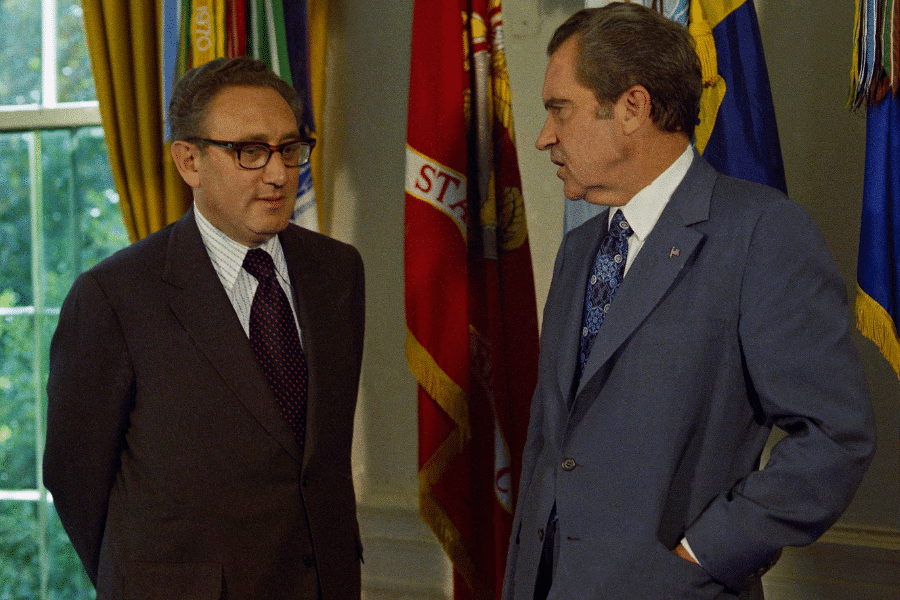
by Daniel Warner | 1 Dec 2023 | Educators' Catalog, History, Politics, United States
Henry Kissinger died on the 29th of November. Our correspondent remembers the one time he had the opportunity to question him directly about his lauded career. U.S. Secretary of State Henry Kissinger being congratulated 16 October 1973 by U.S. President Richard Nixon...
Henry Kissinger’s death made headlines at the end of November 2023. This famous diplomat sparks controversy. How should he be remembered? Correspondent Daniel Warner reflects on his brief interaction with Kissinger in Geneva back in 1999.
Exercise: Read the article with your class, then review headlines announcing Kissinger’s death from various media sources. How does the wording of these headlines differ? How does that difference change the way a reader may perceive Kissinger’s legacy? Use this activity as a conversation starter to discuss the power of word choice in media bias and framing.
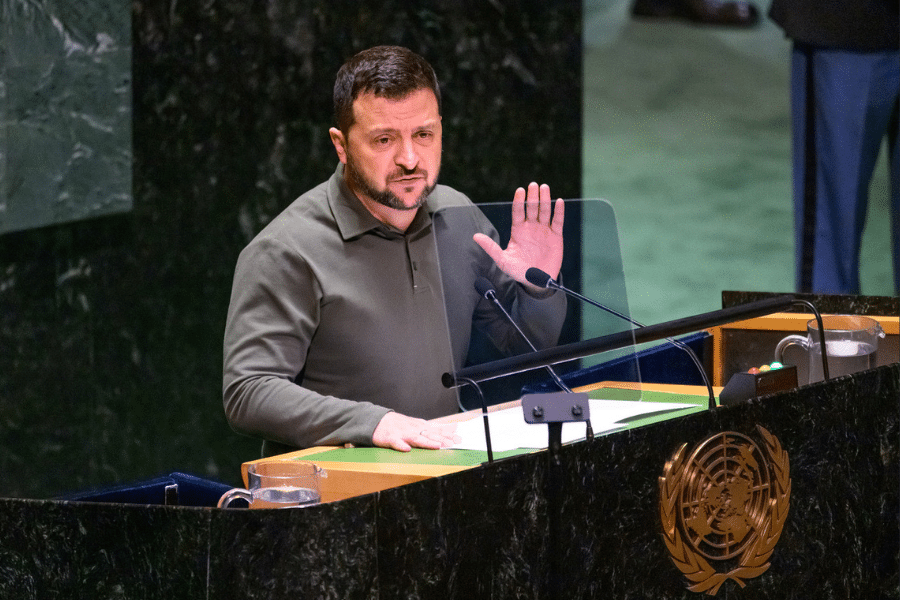
by Enrique Shore | 27 Sep 2023 | Educators' Catalog, Politics, Russia, Ukraine, World
Ukraine leader Volodymyr Zelensky criticized the UN for failing to stop Russia’s invasion. But to do more would mean changing how the United Nations works. Ukraine’s president Zelensky criticizes the United Nations for not doing enough to stop the war, during...
ND photojournalist Enrique Shore takes us to the 78th UN General Assembly in his piece covering Ukraine leader Volodymyr Zelensky’s speech condemning Russia’s invasion of his country. Is holding Russia accountable for its “unprovoked aggression” possible given the current United Nations structure?
Exercise: Read the article with your class, then have students analyze this political cartoon (symbolism, captions, dialogue, etc.). What parallels can students draw between the information in the article and the symbols in the political cartoon? How likely is reform of the current UN structure? Students can then create their own political cartoons depicting the structural tensions detailed in the article.
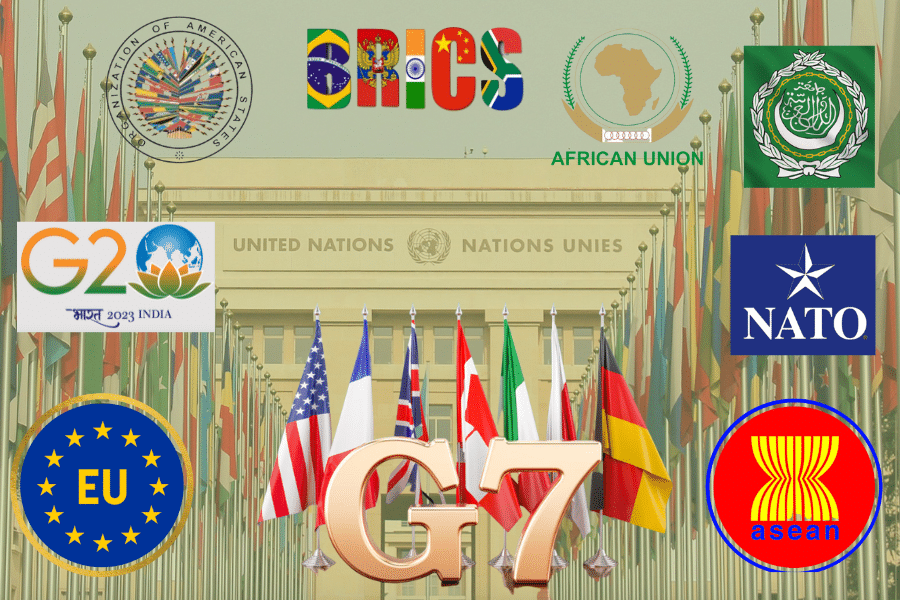
by Bernd Debusmann | 18 Sep 2023 | Decoders, Educators' Catalog, History, Politics, Ukraine, World
When Russia invaded Ukraine, the “international community” stood back. But is there such a thing? What, if anything, can bring the world together? The entrance to the United Nations in Geneva is obscured by the emblems of a dozen international economic and...
Blaming the “international community” for inaction is easy. But does this community actually exist, or is it just tantamount to the United States and company? Correspondent Bernd Debusmann runs it down in this Decoder.
Exercise: Divide students into nine groups. Each group will be assigned one of the regional organizations mentioned in the article: NATO, European Union, Arab League, G-7, G-20, ASEAN, OAS, African Union, BRICS. Groups should research their assigned organization and identify the organization’s main objectives and stance on current international tensions (e.g. war in Ukraine, economic sanctions on North Korea, nuclear proliferation, etc.). Can these regional groups work together to create a true international community, or are their interests too disparate?
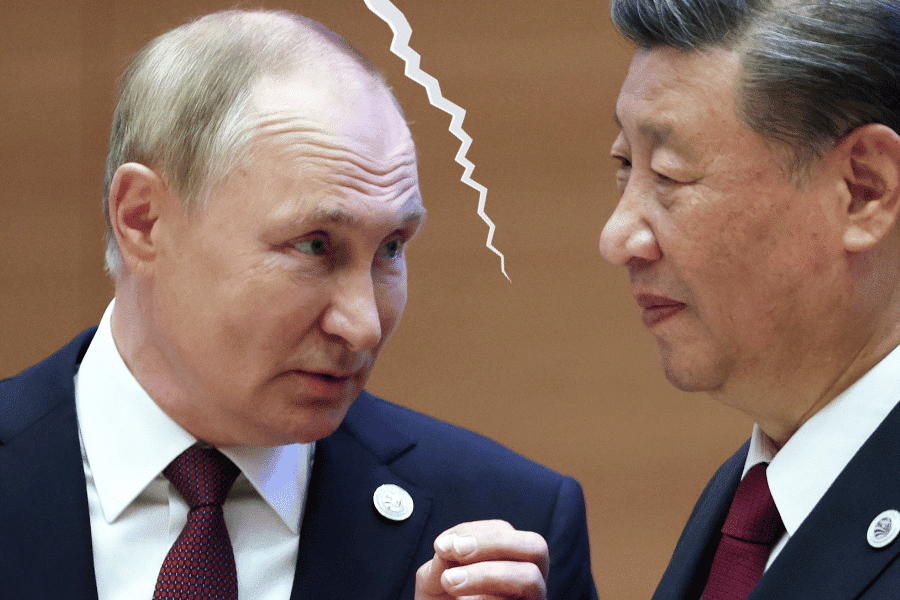
by Braden Holt | 15 Aug 2023 | Asia, China, Educators' Catalog, History, Politics, Russia, Ukraine
Western nations worry about the bond between Russia and China. But perhaps they should consider the possible consequences if this friendship breaks down. Russian President Vladimir Putin speaks to Chinese President Xi Jinping during a summit in Uzbekistan on 16...
The alliance between Russia and China is more fragile than their purported “friendship without limits”. What can history tell us about the Moscow-Beijing connection? And why does it matter? Decode the geopolitical context for your students in this article by Braden Holt of News Decoder partner institution Indiana University.
Exercise: After reading the article, students should select one paragraph that they feel best captures the central idea of the text. Then, they should pare this paragraph down to one sentence, then one phrase and one word. Through this process, students learn to discern and communicate the main idea of a complicated text, a skill they can use in all disciplines. Have students share their final word with classmates. Can the class come to a consensus for one word that best describes the text?
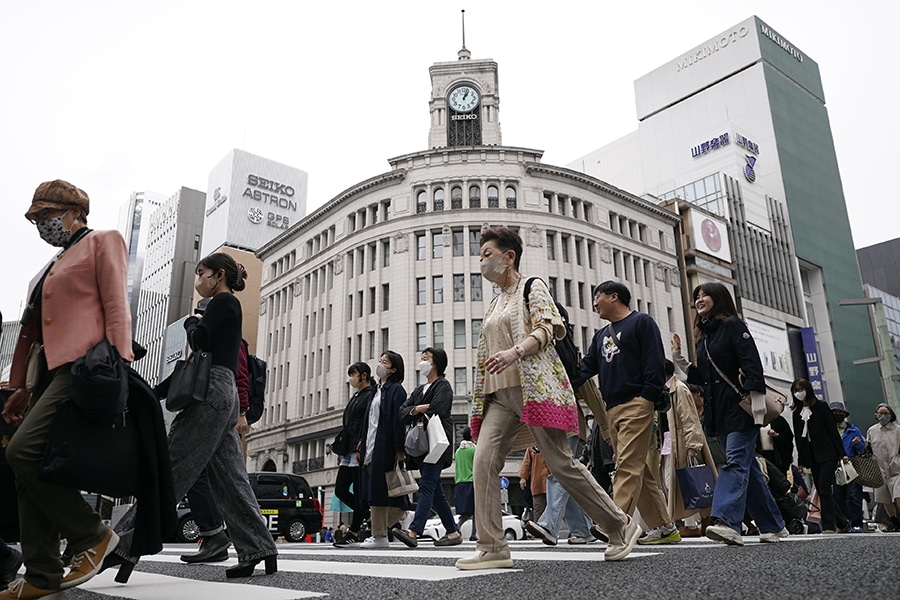
by John West | 23 Jun 2023 | Asia, Decoders, Educators' Catalog, Japan, World
Japan remains a global economic powerhouse and is becoming an ever closer political partner of the West. People walk at a pedestrian crossing in Ginza shopping district in Tokyo, Japan, 31 March 2023. (AP Photo/Eugene Hoshiko) This article was produced exclusively...
ND correspondent and Asia specialist John West takes students to Japan in this Decoder explaining the island nation’s growing geopolitical importance and evolving defense strategy. Ranked the 17th-most democratic country in the world ahead of both the United States and France, Japan remains a key Western ally in a region fraught with tension.
Exercise: Geography has always played a significant role in the founding of civilizations and countries, shaping a nation’s economy and security. Launch a class discussion about how Japan’s geographic location and topography may have influenced the developments described in the article. Then, have students brainstorm how your country’s own geographic location (and geographic features like mountains, water sources, etc.) affects its role and influence on a world stage. This exercise is particularly well-suited to be a complementary lesson after students learn about the conditions of Japan’s surrender after World War II, highlighting the lasting effects of history in the present day.





